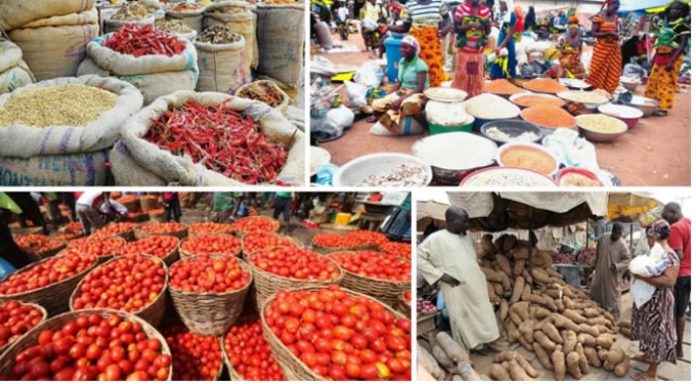A Senior Agricultural Economist with World Bank, Dr Adetunji Oredipe, says mass food production is the only panacea to the skyrocketing food prices in Nigeria.
Oredipe stated this at the 13th Faculty Lecture and award presentation by Faculty of Agriculture, Obafemi Awolowo University (OAU), Ile-Ife on Friday.
The News Agency of Nigeria reports that the theme of the lecture was: “Mitigating Increasing Food Prices: The Underlying Issues.”
Oredipe, who was the guest lecturer, said hunger, which had been with Nigerians for many decades, could not be attributed to religion, politics or ethnicity.
Rather, he said it was as a result of the refusal of many Nigerians to go to the farm.
According to him, while some people, particularly youths, have migrated to the city looking for white-collar jobs, many others have become hooked to several nefarious and fraudulent adventures.
The agricultural economist noted that the prices of goods were usually determined by an interplay between the forces of demand and supply.
Oredipe, an alumnus of the university, said that excessive hunger had caused Nigeria to become the 10th most hungry nation in the world.
He noted that a recent World Bank report revealed that out of 200 million Nigerians, more than 104 million were currently living below the poverty line.
“Nigeria witnessed a steady increase in both inflation and food prices from January to June and rose consistently monthly, which reflected in the prices of garri, millet, yam, cassava, palm oil and vegetable oil.
“Other causes are: national insecurity, lack of infrastructure, nuisance taxes, inefficient distribution channel, reduction in agricultural research and development by governmental and international institutions, subsidy removal, floating of Naira and food importation, among others.
“There’s no amount of money that’s sustainable for the family nowadays; only for the government to ensure that food is available, cheaper and affordable,” he said.
Oredipe called on government to implement a National Food Prices Management Plan (NFPMP) to mitigate the impacts of the food crisis.
According to him, if government can address the identified challenges and youths are ready to get involved in mechanised farming, there will be positive change.
Earlier, the Vice-Chancellor of the university, Prof. Simeon Bamire, commended the guest lecturer for honouring the institution’s invitation, expressing confidence that he would do justice to the theme of the lecture.
Bamire, who was represented by Deputy Vice-Chancellor (Admin), Prof. Yomi Daramola, congratulated the awardees, saying that their contributions toward the growth and development of the faculty and the university could not be over-emphasised.
Also, the Dean of the faculty, Prof. Akeem Tijani, appreciated those who had assisted the faculty and the institution in one way or the other.
Tijani listed the challenges facing the faculty to include: leakage of waste pipes, lack of enough office spaces, inadequate faculty laboratories and ICT facilities, among others.
He solicited for assistance for the faculty for the overall benefit of staff members and students.
Also speaking, Chairman of the occasion, Chief Adegboyega Adegoke, said to eradicate the challenges of food security required the joint efforts of government and Nigerians.
The Vice-Dean of the faculty, Prof. Olalekan Soyelu, who doubled as Chairman of the Organising Committee, said the theme of the lecture was chosen because the skyrocketing food prices in Nigeria required urgent attention.
According to Soyelu, food prices have skyrocketed to the extent that many Nigerians cannot afford three square meals a day again.
He stressed the need for governments at all levels to address the challenges of storage facilities, security and power supply, among others.
The News Agency of Nigeria (NAN) reports that eight individuals were given awards by the faculty. (NAN)


